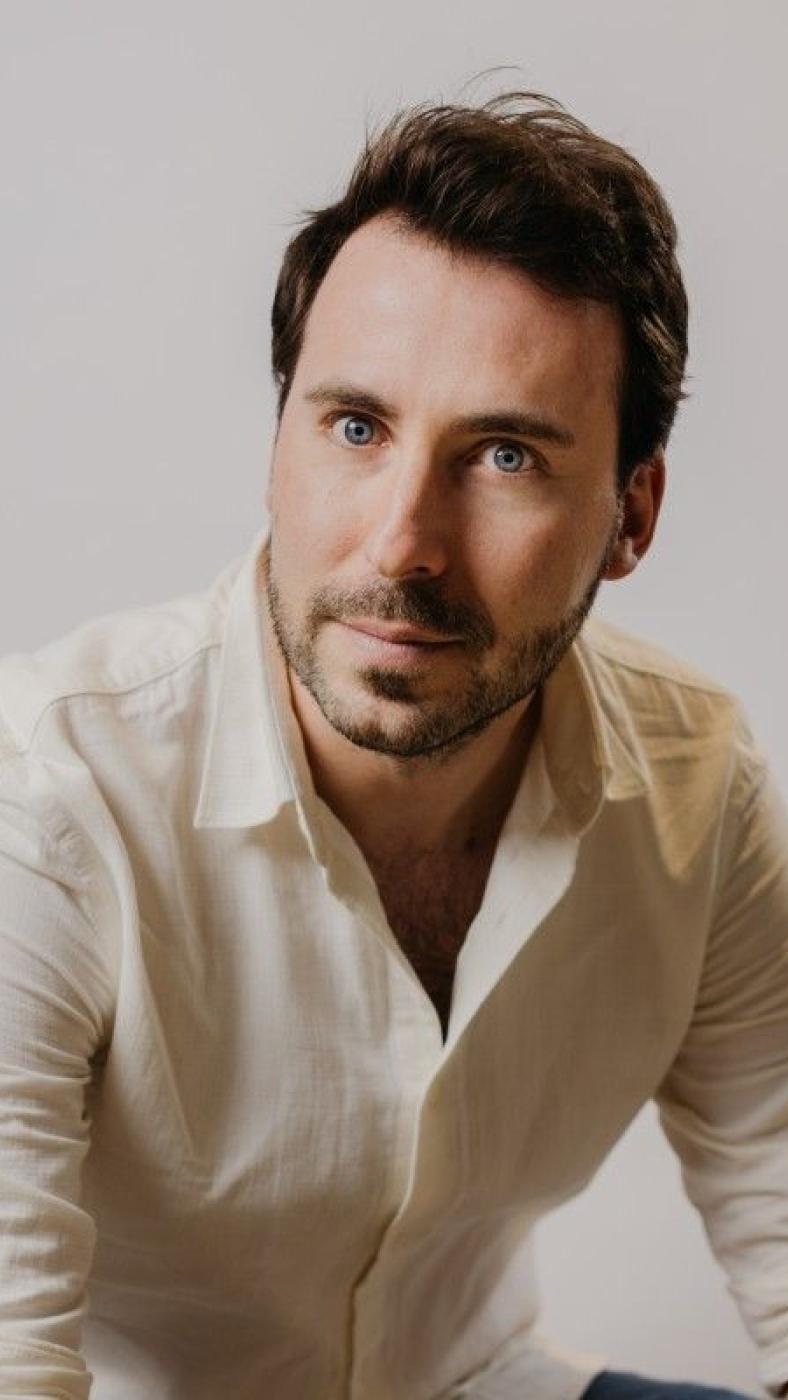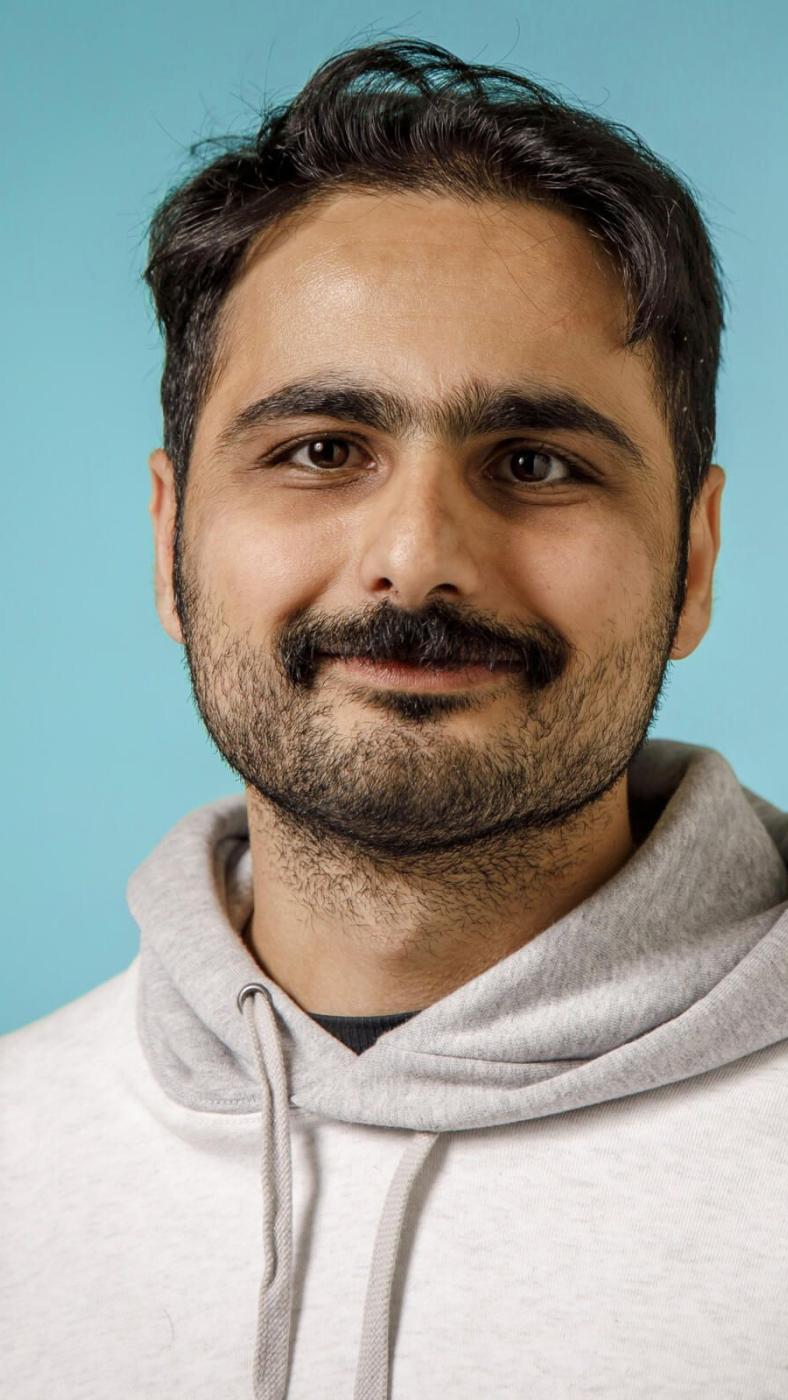
Many academic researchers dream of turning their innovations into successful businesses. It’s not just the lure of big money that draws them in, but also the desire to make a meaningful contribution to this increasingly chaotic world. Yet, they often struggle with how to take that crucial first step. That’s where StartLab Brussels for Researchers comes in: a launchpad designed to help them transform their research into market-driven solutions. Maarten De Ruyck, programme manager for researchers, explains: “There is an incredible amount of potential and talent on our campus.”
The version of StartLab tailored specifically for researchers is new, but StartLab Brussels itself has been running for several years as a business incubator programme. It’s based in an old townhouse on Sint-Michielsstraat in Etterbeek, fully equipped for co-working, meetings and presentations. Everyone taking part in the programme can use the space free of charge. StartLab was founded by VUB and ULB professors Thomas Crispeels and Olivier Witmeur, who combined their expertise to bring the initiative to life. Maarten De Ruyck explains: “Until recently, our focus was solely on students and young entrepreneurs. Since this year, we’ve extended our scope to include researchers from VUB. We take researchers out of their comfort zones and connect them with potential customers. One major advantage is that we’re able to create interactions between academia, the city and the business world.”
What’s the difference between young entrepreneurs and researchers?
“Students and young entrepreneurs are often highly driven to become business owners. They come up with an idea, spot a gap in the market, and then develop a product to fill it. Researchers, on the other hand, have often spent years working on a technology or innovation. If they want to move into entrepreneurship, they suddenly have to start thinking in a completely different way. Instead of viewing their research as the end goal, they now need to ask themselves who in the market is actually waiting for what they’ve developed. At StartLab, we guide them through this transition. They learn how to pitch, understand intellectual property and patents, conduct market research, and speak to potential customers to test whether their initial idea holds water. After all, the market operates very differently from academic research – it’s less concerned with the technology itself and more focused on how it can be used and the business model behind it.”

Maarten De Ruyck
“Researchers often have no idea what entrepreneurship really involves”
Are there many academics eager to start their own business?
“At the moment, it’s still quite limited. That’s why we want to raise more awareness about StartLab. There’s a huge amount of talent and potential on our campus, but the leap into entrepreneurship can be daunting. It’s not for everyone either — you need resilience and flexibility, because the odds of your plan A becoming an instant success are next to none. More often than not, it’s plan C or D that finally takes off. After their master’s degree, students typically face three options: they either go to work for a company or organisation, pursue an academic career, or try to start their own business. The first option is the safest and, to be honest, it’s also a bit ingrained in our national mindset. As Belgians, we tend to be modest and somewhat risk-averse. Of course, entrepreneurship always involves some risk, but when you’re young, you’re in a good position to take a few chances. With the help of StartLab, we try to make that journey as straightforward as possible. Many researchers have absolutely no idea what entrepreneurship actually entails. That’s why StartLab is open to everyone — even people who don’t yet have a project or business idea but simply want to get a taste of what entrepreneurship is all about are very welcome.”
Is innovation a requirement to get started?
“No — although, by its very nature, research is already innovative. In fact, there are very few formal requirements to join StartLab. The most important qualities are drive and flexibility. Our slogan is ‘Where dreamers become do-ers’. We focus primarily on the individual aspiring entrepreneur, far more than on the project itself. Once someone has mastered the right skills, the project will usually follow naturally.”
What kinds of modules do you offer?
“We offer several tracks: Explore, Build and Grow. Explore is for people who don’t yet have an idea. Build is aimed at those who do have a project. Grow is for those who already have a business or a strong marketing case they want to develop further. We’ll be launching Explore from the next academic year. Build is specifically tailored to researchers and was piloted for the first time in October. From the next academic year, we’ll be rolling it out officially. It’s a track made up of 16 sessions, where we support researchers in translating theory into the practical realities of entrepreneurship.”
“The market is a completely different world — it has little time for dull presentations packed with detail”
How does this differ from the former start-up seminars?
“Unlike the TechTransfer seminars where VUB researchers once began their entrepreneurial journeys, StartLab is now being taken beyond the walls of the university for the first time. Whereas the previous approach leaned more towards traditional classroom-based teaching, StartLab is all about action — it’s about exploring entrepreneurship and offering intensive, hands-on support. It’s now grown into a thriving community of young entrepreneurs, coaches and experts. For now, the researcher-specific part of the programme is limited to those at VUB, but the aim is for ULB to come on board too — and eventually, we want to scale it up to the European level.”
How do the academic and business worlds view each other?
“They’re two completely different worlds. Researchers are generally more introverted and laser-focused on a single detail. We often describe them as people who know everything about one thing — but not much about everything else. It’s exactly those broader skills they lack that are essential for making the leap into entrepreneurship. The market, on the other hand, is a world apart. It has little patience for dry, overly detailed presentations. What matters is whether a solution exists — and whether there’s real demand for it.”
What knowledge and experience do you personally bring to the table?
“I manage the programme and my background is primarily in communications, so my focus is especially on pitching and follow-up. But it’s very much a team effort. Professor Thomas Crispeels and his research group bring a wealth of expertise in entrepreneurship. Arne Pauwels from TechTransfer is our one-to-one coach and has extensive experience in building startups and spin-offs. We also benefit from further support from TechTransfer, including for intrapreneurs — that is, entrepreneurs working within existing organisations — as well as for researchers in need of funding. And in that regard, Brussels offers a uniquely rich environment, with funding opportunities available at the Flemish, Brussels and European levels.”
Want to know more about StartLab Brussels?
Battman
Brubotics researcher Parham Mohammedi is developing ‘Battman’, a project focused on Intelligent Battery Management. He completed the first phase of the new StartLab programme during the first semester. At present, he’s receiving tailored support, and will continue with guidance from an advisory board to take the next steps.
“Battman is an intelligent system that adjusts battery charging to the user’s needs and helps extend battery life. Take an e-bike, for example — if you use it to commute from home to work, you often charge it fully at home and then again at the office. But fully charging twice a day is usually unnecessary, especially if you’re only using around 20% of the battery. That kind of overcharging can shorten its lifespan.
Our innovation lies in predicting usage — such as the fixed number of kilometres you cycle to work. Based on that, we’ve developed a system that can intervene during charging, preventing overcharging. I chose StartLab mainly because I’m affiliated with VUB. It gave me the chance to present my ideas, and from the very beginning, the support on offer made me feel I was in the right place.
At first, you’re completely convinced your original idea is the best. But the most important thing I’ve learned so far is that your idea can only improve through further development.”
“StartLab gave me the chance to present my ideas — and from the very beginning, I felt I was in the right place thanks to the guidance they offered.”
“I worked for six years in industry as an R&D engineer, which gave me a good understanding of what companies actually want. But bringing a brand-new product to market yourself is a completely different experience. Making money is a bonus, but it’s not the main driver. If you’ve got an idea that benefits society and you’re able to develop it further, that gives you far more satisfaction.
At Brubotics, quite a few researchers are also thinking about becoming entrepreneurs. I was inspired by colleagues who started their own businesses, and hopefully my enthusiasm will spark a snowball effect among others.
Combining research and entrepreneurship isn’t easy. A PhD demands a lot, and the focus is always on publishing. But entrepreneurship goes beyond publishing — it’s about taking that step into the real world. Neither is a 9-to-5 job, so you have to put in a lot of hours. Evenings and weekends are no exception. In my roadmap, I’m aiming to test the prototype somewhere between 18 and 24 months from now. But to be honest, it’s going to be an ongoing process.”

Parham Mohammedi